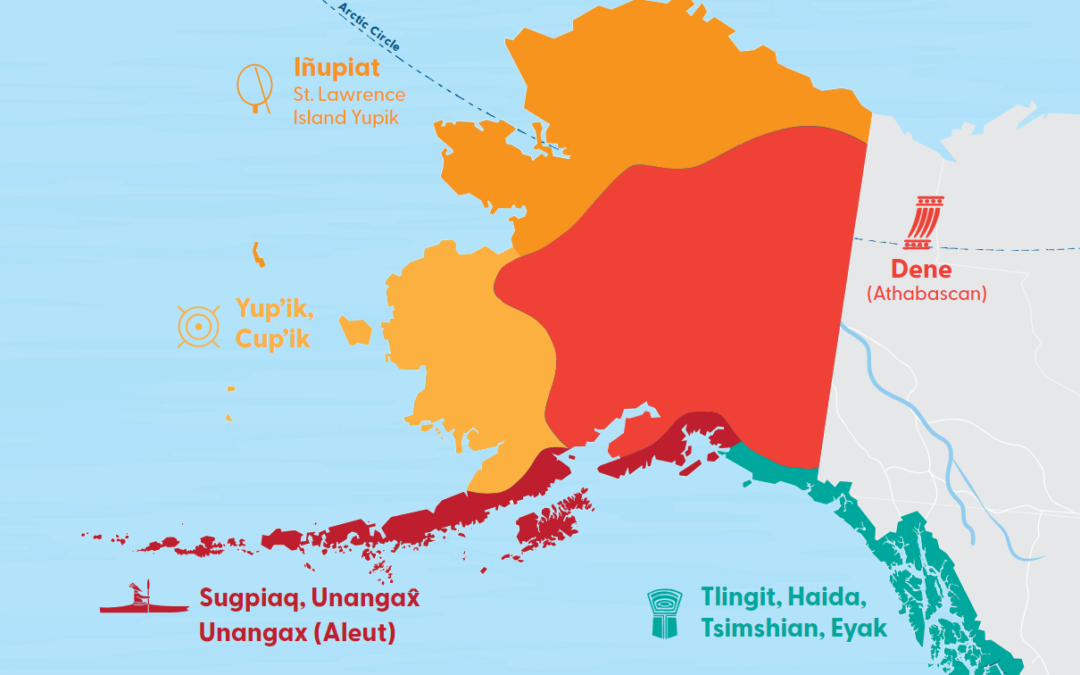Adding insult to injury!
I have an incredible story for you today, a story that awakens memories of our own history in Ireland, in relation to our language.
In September 2022, bad storms blew across northwest Alaska. They were caused by typhoon Merbok, and they caused a lot of damage in places where Native American people live. The United States government (Federal Emergency Management Agency – it's called FEMA) provided money to repair the damage. Many Indigenous people had to apply to get money. Because they have their own languages, FEMA had to provide them with instructions in Yup'ik and Inupiaq.
FEMA awarded the translation contract to a small company in California, called "Accent on Languages." It was an utter disaster!
Strange Phrases!
When candidates started working on their applications, they expected instructions to help them fill out the paperwork. But instead, all they had to read were gibberish and strange phrases. For example, here is one sentence: "Tomorrow, we will go hunting, and we will not take anything with us." Here's another: "Your husband is a polar bear, skinny!"
Another document was in the wrong language. Instead of being in the Iñupiaq language, it was written in Inuktitut, a language that uses its own alphabet. Inuktitut is spoken 5,000 kilometers away from the area in question, in Labrador and Quebec in Canada.
In one press release, the 'State News Desk' was translated as "When she said that, the dog ran further away from the curtain".
An abrupt response
Tara Sweeney, an Iñupiaq who previously worked for the US Department of Home Affairs, told the AP that there was "symbolism" in the errors that went back to when Alaska Native languages were being erased in residential schools. in the 1900s.
“Like thousands of others in Alaska, my mother was beaten because she spoke her own language at school. When you see the federal government now, distributing documents in our languages, , I can't describe the feeling that that symbolism inspires in me" said Sweeney, talking to 'Associated Press' (AP) .
Jaclyn Rothenberg, a spokeswoman for FEMA, told the AP that the company "Accent on Languages" was fired and FEMA redid the translation. The aid was not postponed as a result of the error, Rothenberg told the AP.
Caroline Lee, CEO of "Accent on Languages", said that in their 30 years of translating, they had never experienced such a catastrophic failure. She fired the translators who were responsible for the mistranslations. Following this disaster, new measures were put in place to ensure that this would not happen again. FEMA will also be reimbursed in full, she said.
Conclusion
This story informs us about the problems faced by minority languages around the world. Wherever various empires have oppressed the native peoples, they have almost wiped out their languages. They added insult to injury in making a terrible mess in their efforts to use the same languages they destroyed in the first place. I have to say that I fully and completely agree with what Tara Sweeney has to say on the subject. After understanding this story, it dawned on me that FEMA did not ask the tribes in question to make the transfers. Don't they know their own languages best? The United States government should have a policy in place to offer a contract like that to those who speak the minority languages.
Bad things happen in Ireland too, unfortunately, when it comes to our own language!
I remember one terrible example where Cork County Council - a county where the Múscráí Gaeltacht is located - used 'Google Translate' to provide original content on the County Council's website in Irish.
Or you may remember the major problems faced by the Central Statistics Office a few years ago, as their system for providing information about the most common names given to children did not include names with fadas on them. The CSO's explanation for their system being faulty was technological difficulties.
It was no surprise then, that both the HSE and "Bank of Ireland" said that technological issues were the cause of all the fadas being missing in their own systems.
The bottom line is that we all have to constantly put pressure on our governments, whether in Ireland or Alaska, to protect our native languages!





